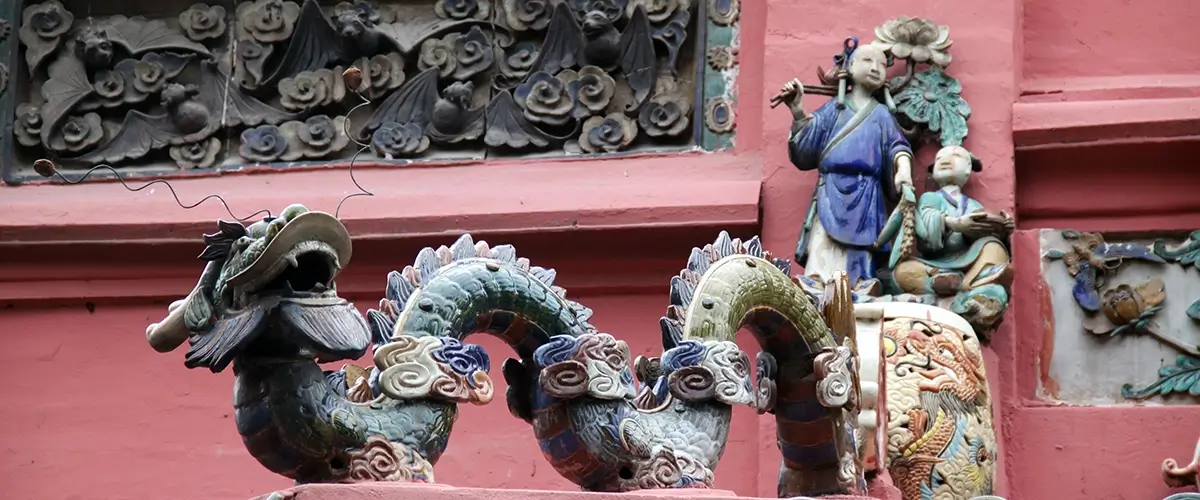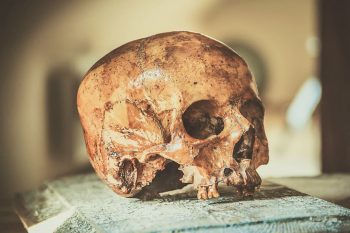What is Chinese mythology?
Chinese mythology is a collection of ancient beliefs, legends, and stories that have been passed down throughout Chinese history. It includes a diverse range of cultural elements, including myths, folklore, gods, goddesses, spirits, and supernatural beings. Chinese mythology is deeply rooted in the religious and philosophical traditions of China, such as Confucianism, Taoism, and Buddhism.
The myths and stories in Chinese mythology are intended to explain the natural world, provide moral guidance, and offer spiritual insights. These tales feature famous figures like the Jade Emperor, the Monkey King, the Eight Immortals, the Dragon King, and the Phoenix. These characters have been popularised in modern culture through books, movies, and television shows.
Chinese mythology has played a significant role in shaping Chinese culture and identity throughout history. It is a rich and complex tradition that has continued to influence Chinese beliefs, values, and art. Additionally, Chinese mythology has also had a global impact, with its stories and characters spreading to other parts of the world and influencing popular culture.
Overall, Chinese mythology is a fascinating subject that offers insight into the beliefs and values of ancient Chinese society. Exploring this tradition can provide a deeper understanding of Chinese culture and history, and it remains a topic of interest to many people today.
History and origins of Chinese mythology
Chinese mythology has a rich history and diverse origins, drawing from a range of religious and philosophical beliefs in ancient China. It is an extensive collection of myths, legends, and stories that explain natural phenomena, provide moral guidance, and offer spiritual insights. Taoism, Confucianism, and Buddhism, as well as shamanistic and animistic traditions, are significant sources of Chinese mythology.
Many early Chinese myths and legends were passed down orally and recorded in written form during the Han dynasty (206 BCE – 220 CE). Texts such as the “Book of Documents” and the “Book of Changes” provide insights into the early mythology and cosmology of China. Over the course of Chinese history, mythology has played a crucial role in shaping cultural and social norms, offering a shared understanding of the world and humanity’s place within it.
Chinese mythology includes myths about the origins of the universe, such as the story of Pangu, as well as a diverse cast of characters, such as the Jade Emperor, the Monkey King, and the Eight Immortals. These figures, along with others like the Dragon King and the Phoenix, continue to captivate and inspire people around the world. Moreover, regional cultures and ethnic groups have also influenced Chinese mythology. For instance, the Zhuang people in southern China incorporate elements of animism and shamanism in their myths, while the myths of the Tibetan people in western China are heavily influenced by Buddhism.
Who are the key figures in Chinese mythology?
Chinese mythology is a rich and complex tradition with a diverse cast of characters. Some of the most famous figures in Chinese mythology include the Jade Emperor, the Monkey King, the Eight Immortals, the Dragon King, and the Phoenix. Each of these characters has their own unique stories and significance, and they continue to be celebrated and explored in modern culture.
The Jade Emperor is one of the most prominent figures in Chinese mythology, often depicted as a wise and just ruler of heaven. The Monkey King, also known as Sun Wukong, is another well-known character, a mischievous and powerful immortal with superhuman strength and agility. The Eight Immortals, a group of legendary beings who have achieved immortality, each have their own unique powers and personalities, and are often depicted together in art and literature.
The Dragon King, a benevolent deity associated with water and weather, is often depicted as a dragon with the ability to control the seas and the weather. The Phoenix, a mythical bird associated with rebirth and renewal, is often depicted as a beautiful and majestic creature with colorful plumage.
Other important figures in Chinese mythology include the Four Heavenly Kings, the Queen Mother of the West, the Yellow Emperor, and many more. Each of these characters plays a unique role in the mythology of China, and their stories and significance continue to captivate and inspire people around the world.
Overall, Chinese mythology offers a fascinating window into the beliefs and values of ancient Chinese society. The rich cast of characters and stories that make up this tradition continue to be a source of inspiration and wonder, and they have influenced art, literature, and popular culture around the world.

